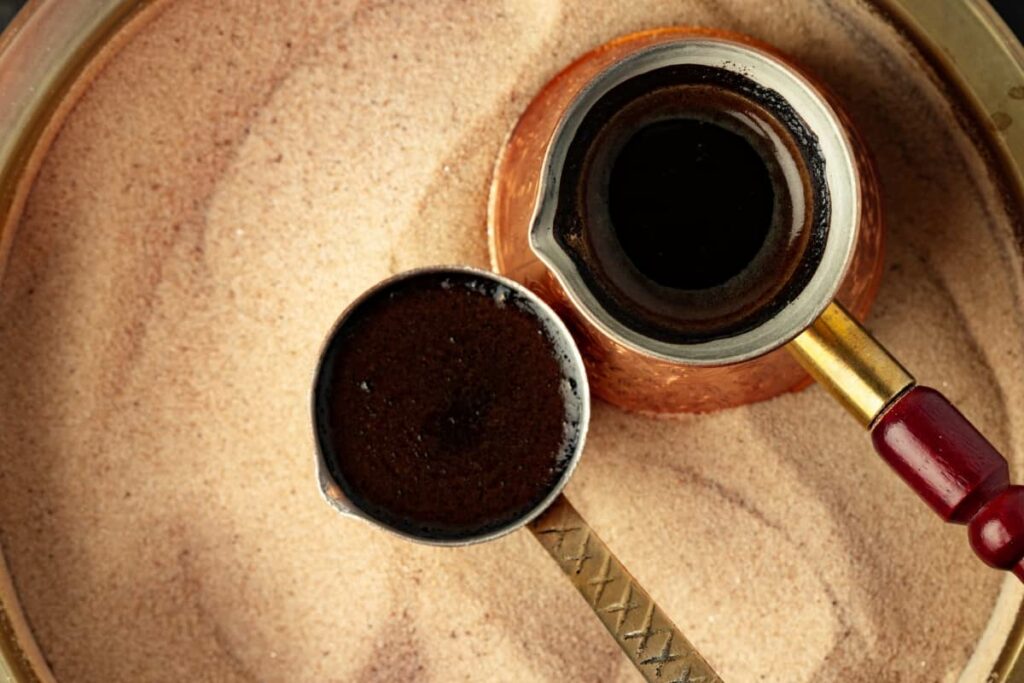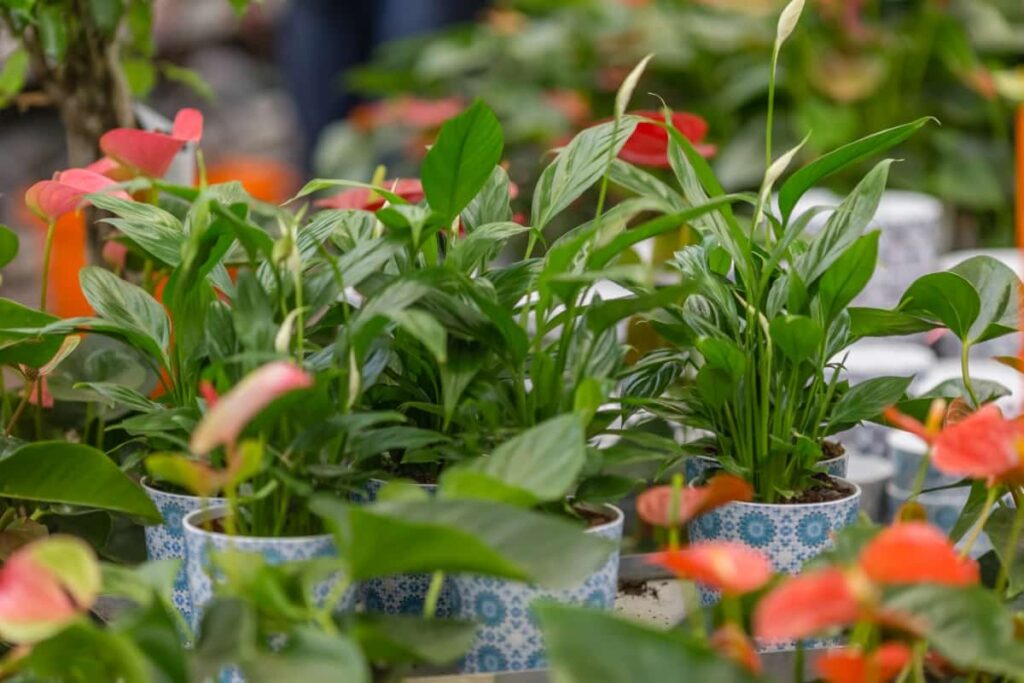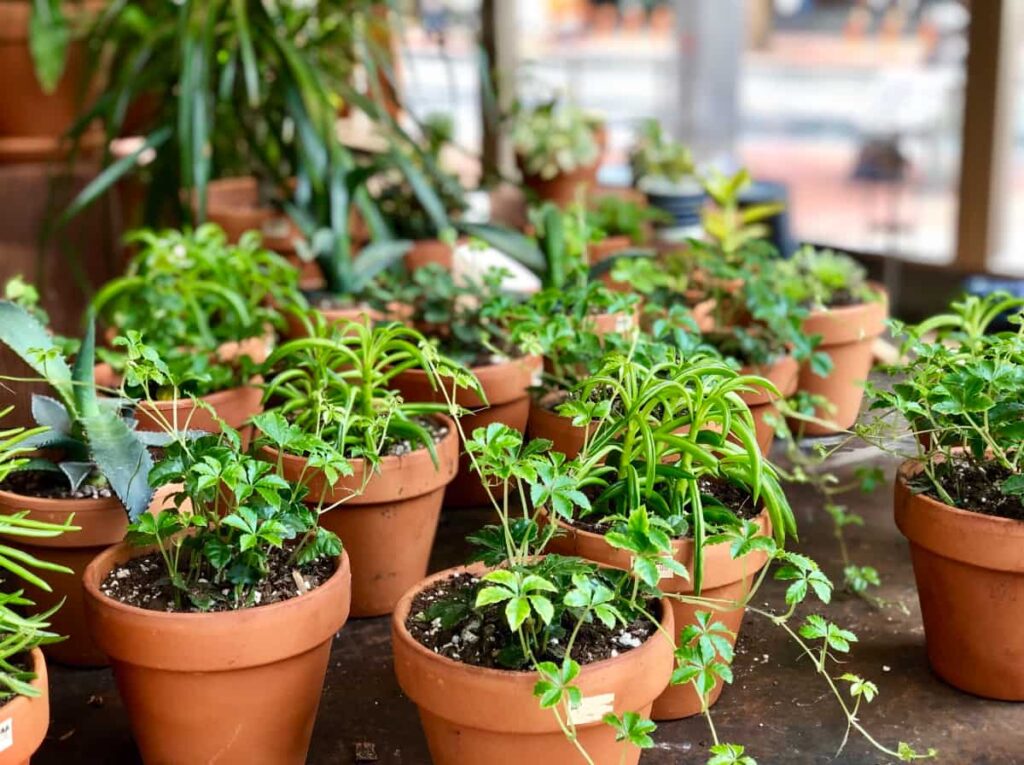In simple terms, Molasses is the byproduct of the sugar refining process. The juice extracted from sugar beets is boiled down to remove the water content, resulting in a dark, viscous liquid known as molasses. It contains various nutrients and minerals that are beneficial for plant growth.
Benefits of Molasses for Plants
The key advantage of using molasses is its ability to enhance soil microbial life. Molasses is a thick, dark syrup that has numerous benefits for potted plants. It serves as a natural essential nutrient source and energy that can enhance the overall health and growth of your plants. Molasses plays a crucial role in promoting soil health and nutrient absorption for potted plants. It acts as a natural fertilizer by providing essential nutrients like potassium, manganese, iron, and calcium. These micronutrients are important for plant development.

Molasses for Potted Plants
Types of Molasses and Their Uses
Unsulphured Blackstrap Molasses
One type of molasses that is commonly used in gardening is unsulphured blackstrap molasses. Unlike other types of molasses, it does not contain any sulfites or sulfur dioxide. Unsulphured blackstrap molasses is highly beneficial for potted plants due to its high mineral content. It contains significant amounts of potassium, calcium, iron, magnesium, and manganese – all essential nutrients for plant growth and development.
Sulphured Molasses
Sulphured molasses is a type of molasses that has been treated with sulphur dioxide during the extraction process. This treatment helps to preserve the molasses and extend its shelf life. However, it also affects the flavor and nutrient content of the molasses. In addition, sulphured molasses can also aid in disease prevention.
Nutritional Content and Benefits
Micronutrients in Molasses
Molasses is not just a sweet treat for your taste buds; it also provides a host of essential micronutrients that can benefit your potted plants. This natural byproduct of the sugar refining process contains vital elements like iron, calcium, magnesium, and potassium. Aside from these micronutrients, molasses also contains trace amounts of other beneficial elements such as manganese, copper, zinc, and sulfur. These minerals support various metabolic functions within the plants.
Enhancing Soil Microbial Life
A healthy and vibrant garden starts with the soil. The key aspect of maintaining fertile soil is ensuring a thriving microbial community. These tiny organisms play a major role in breaking down organic matter, releasing nutrients, and improving soil structure.
By using molasses for potted plants, you can enhance the activity and diversity of beneficial microorganisms in your soil. Using molasses as part of a regular gardening routine promotes balanced microbial populations in the soil while suppressing harmful pathogens. This ultimately leads to healthier plant roots and increased nutrient availability.
Preparing Molasses Solutions for Potted Plants
Basic Molasses Solution Recipe
To make the solution, mix one tablespoon of unsulphured blackstrap molasses with one gallon of water. Stir well until the molasses is completely dissolved. This mixture can be applied to the soil or used as a foliar spray around your potted plants. Moreover, using molasses in gardening helps enhance soil microbial life.
The sugars present in molasses act as food sources for microorganisms like bacteria and fungi. These microbes play a crucial role in making nutrients more accessible to plants. Adjusting concentrations is another important aspect when using molasses solutions. Some plants may require stronger concentrations, while others may need milder ones depending on their specific needs.
Adjusting Concentrations for Different Plant Needs
Different plants may require varying levels of nutrients and sugars found in molasses. Some plants thrive with a higher concentration, while others may benefit from a lower dose. It all depends on factors such as plant type, growth stage, and overall health. To determine the right molasses concentration for your potted plants, start by considering their current state.
In case you missed it: 10 Best Drip Irrigation Kits for Potted Plants in India

For weaker or stressed plants that need extra care, you might want to increase the concentration slightly. This will provide them with more energy and help improve their overall health. On the other hand, if your plants are already thriving but could use some additional organic nutrition, reducing the concentration may be beneficial.
How to Apply Molasses to Potted Plants
Foliar Spray Application
Foliar spray application of molasses is an effective way to provide your potted plants with the benefits of this natural sweetener. To start, dilute the molasses in water using a ratio of 1 tablespoon per gallon. Mix well to ensure even distribution. When applying the solution, make sure to cover both sides of the leaves thoroughly. Use a handheld sprayer or a misting bottle for better control and coverage.
The fine mist will allow the plant’s foliage to absorb the nutrients from the molasses more efficiently. For best results, repeat this process every two weeks throughout the growing season. This consistent application will help boost plant growth and enhance overall plant health.
Direct Soil Application
To apply molasses directly to the soil, start by diluting it in water. A basic molasses solution recipe involves mixing 1 tablespoon of unsulphured blackstrap molasses with 1 gallon of water. However, you can adjust the concentration based on the needs of your specific plants. Once you have your diluted solution ready, pour it onto the soil around your potted plants.
Make sure to distribute it evenly and avoid drenching the plant foliage or stems, as this may lead to unnecessary moisture retention or potential fungal issues. By applying molasses directly to the soil, you are providing a natural source of essential micronutrients that can improve overall plant health and growth.
Molasses as a Soil Amendment
Improving Soil Structure
When added to the soil, molasses acts as a natural binding agent, helping to create more stable and well-aerated soil. The sticky nature of molasses allows it to bind particles together, preventing them from becoming compacted. This helps water and air move freely through the soil, creating an optimal environment for plant roots to grow.
Promoting Beneficial Microorganisms
These organisms play a major role in maintaining a balanced ecosystem within your potting mix. When you apply molasses to your plants, it acts as a food source for these microorganisms. This increased microbial activity has several positive effects on your potted plants. It helps break down organic matter more efficiently, resulting in improved nutrient availability for plant roots. The presence of an active microbial community creates competition with pathogenic microbes and limits their growth and spread.
Molasses in Pest and Disease Management
Natural Pest Deterrent
The sticky sweetness of molasses acts as a deterrent against pests, making it less likely for them to take up residence in your plants. Pests like aphids, mealybugs, and spider mites are known to dislike the smell and taste of molasses. By applying a diluted molasses solution to your plants, you create an environment that is less inviting for these unwanted visitors. This natural pest deterrent can help protect your plants from infestations without the need for harsh chemical pesticides.
Fungal Disease Prevention
In addition to repelling pests, molasses also has properties that can help to control fungal diseases in potted plants. Fungi thrive in damp conditions, but the strong antifungal properties of molasses make it difficult for fungi to survive. Regular applications of diluted molasses solutions can help keep fungal diseases at bay.
In case you missed it: Best Outdoor Potted Plants for Boston (MA): Winter, Low-Maintenance, Shade, and Full Sun

Integrating Molasses with Other Organic Practices
Compost Enhancer
By adding molasses to your compost pile, you can create nutrient-rich compost for your potted plants. Composting is an essential practice for any organic gardener. It allows you to recycle kitchen scraps into a valuable resource for your potted plants. To integrate molasses with your composting routine, mix about 1 tablespoon of unsulphured blackstrap molasses per gallon of water.
Use this solution to moisten your compost pile or add it directly when turning the pile. The addition of molasses not only helps speed up decomposition but also improves overall soil fertility by increasing nutrient availability.
Synergy with Other Organic Fertilizers
The sugars in molasses act as a food source for microorganisms that break down organic matter and release nutrients into the soil. By adding it to the compost pile or mixing it with other natural fertilizers, you create a powerful blend that nourishes both the soil and your plants.
Additionally, when used alongside other organic practices like crop rotation or companion planting, molasses can help improve overall garden health and resilience. Incorporating molasses into your gardening routine not only promotes sustainable plant growth but also fosters a more balanced ecosystem in your potted garden.
In case you missed it: Best Outdoor Potted Plants for Oklahoma City (OK): Winter, Low-maintenance, Shade, and Full Sun

Conclusion
Molasses contains vital micronutrients such as iron, calcium, magnesium, and potassium – all of which are crucial for healthy plant growth. Using molasses in your potted plants can help enhance soil microbial life. The sugars present in molasses act as food for beneficial microorganisms like bacteria and fungi, creating a thriving ecosystem within your potting mix.
- Crops Grown in Summer Season: Best Choices for Summer Gardening
- Organic Pest Control for Tomato Farming
- How to Maximize Sheep Farming Profit
- Broccoli Varieties: Choosing the Right Cultivars for Your Farm
- How to Raise Pigs in Your Own Backyard: A Comprehensive Guide
- Budget Friendly Sheep Shed Ideas: Cheap and Low-Cost Tips
- How Much Do Cattle Farmers Make: Revenue Streams in Cattle Farming
- Management Pests and Diseases in Your Cotton Field
- Sheep Farming Business Plan for Beginners
